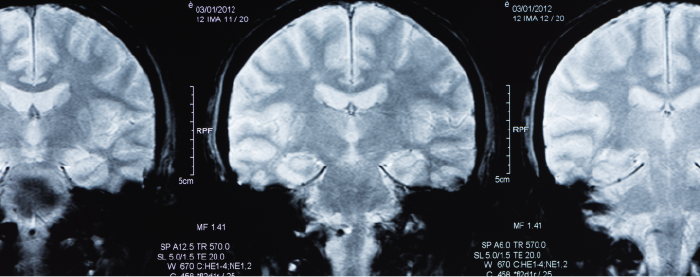| 認知科學家:你的記憶可被竄改  每當談到記憶研究,大家第一時間聯想到的通常是「遺忘」相關的問題,像是健忘或阿茲海默症,反而沒有注意到自己認為牢牢記住的事情,其實與客觀的現實有很大的出入。如果我們能對記憶與現實的落差有所認知,就能讓我們對於記憶有多脆弱這件事情多一分警醒。 大腦會自動幫我們填補空白的記憶 Memory probably isn't as good as we think it is. When we create new memories, our neurons create new connections in order to encode the memory. These new connections are then stored and established again when it is recalled. However, every time we recall a memory, we add slight variations to it. In our daily life, this isn't a bug, instead, it's a feature. We can't possibly remember every tiny detail we see, but our memories would feel incomplete if there were big swaths of gray running through them. So, the brain fills in the details as best it can, borrowing from other memories and the imagination in order to build what feels like a complete picture. 記憶可能沒我們想的可靠,當我們製造新的記憶,大腦神經就會為了串連這些記憶,創造出新的神經連結,這些連結會被儲存起來,等待記憶被喚起後再度重建。然而,每喚起一次記憶,大腦就會針對記憶做出些微的調整。這個機制對我們日常生活來說,不是問題,反而是幫助。畢竟我們無法將生活瑣事記得鉅細靡遺,但如果就放任這些空白的記憶片段留在腦海,我們的記憶就會不完整,所以為了幫我們補全記憶的完整度,大腦會自動借用其它的記憶和想像畫面,來彌補所有空白記憶的細節。 目擊證人虛構記憶導致美國陪審團誤判 Since the 1990s, when DNA testing was first introduced, Innocence Project researchers in the United States have reported that 73 percent of the 239 convictions overturned through DNA testing were based on eyewitness testimony. One third of these overturned cases rested on the testimony of two or more mistaken eyewitnesses. Why did so many eyewitness testimonies get it wrong? 自1990年代DNA檢驗首度問世以來,美國清白專案的調查員指出,239位被告當中,已有73%的個案用DNA檢驗推翻目擊證詞的指證,其中1/3的個案,還推翻了2到3個錯誤目擊證詞才獲得平反。但到底為什麼會有這麼多目擊證詞的誤指呢? For many years, psychologists have pointed out that we suppress memories that are painful or damaging to our self-esteem. Furthermore, many victims block their memories of the attack completely after the painful experience. Meanwhile in the Ted Talk of Elizabeth Loftus, a false memory scholar, she mentioned a project in the United States. Information has been gathered on 300 innocent people who were convicted of crimes they didn't commit. They spent 10 years or more in prison for these non-existent crimes which now DNA testing has proven them to be innocent. When those cases were analyzed, three quarters of them were due to faulty eyewitness memory. 多年來,心理學家指出我們會壓抑痛苦甚至危及自我的記憶,因此,許多受害者會完全壓抑受害過程的記憶。同時,在研究虛構記憶專家Elizabeth Loftus的Ted Talk中,她提到美國有一項計畫顯示,計畫搜集資訊證明有300名無辜的被告,而這些人因為那些莫須有的罪刑在監獄裡虛耗了10年以上的人生。現在DNA鑑定已經證實他們其實是無辜的。綜合分析那些案子後,發現其中有3/4的人都是由於錯誤的記憶、錯誤的目擊指證記憶而遭到誤判。 記憶就像維基百科,任何人都能竄改 Many people believe that memories are stored in our brains just as they are in computers. Once registered, the data is put away for safe-keeping and eventual recalled. The facts don't change. We just record the information, then we call it up and play it back when we want to answer questions or identify images. However, decades of work in psychology has shown that this just isn't true. Our memories are constructive and they're reconstructive. Memory works a little bit more like a Wikipedia page: we can go in there and change it, but so can other people. “We should all keep in mind that memory, like liberty, is a fragile thing.” said Elizabeth Loftus at the end of her TED talk. 很多人認為大腦記憶的運作方式就像電腦,記憶經存檔後就會被安全儲存,也能隨時點開,檔案內容並不會被任意更動。我們認為自己記錄下真實的事件,只要我們一需要回答問題或回顧畫面,就能點開讀檔。但幾十年來的心理研究指出,大腦的運作一點也不像電腦。我們的記憶其實具有可塑性,能夠被重新建構。記憶運作也不像電腦讀檔,反而更像是維基百科:我們能修改記憶內容,其他人也同樣可以竄改。最後,Elizabeth Loftus在她的TED talk最後說道:「我們應該對此銘記在心,記憶就和自由一樣,是個十分脆弱的東西。」 延伸影片:TED Talk 參考資料:TED Talk、Healthline、Scientific America、The Conversation、Psychreg
史嘉琳《英語思維50講》每個人的英語基本功,看課程  |
沒有留言:
張貼留言